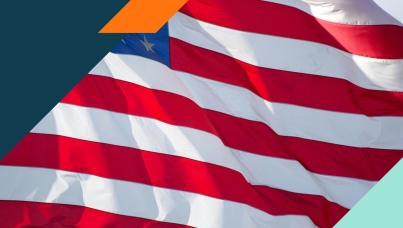

Rising share of Americans believe that sports betting impacts the integrity of games
Washington, DC, November 21, 2025 – A new Ipsos poll finds that nearly half of Americans agree that sports betting lessens the integrity of the game, a significant increase from earlier this year. A similar percentage are also concerned that sporting events are rigged due to gambling. Consistent with these views, significantly more Americans support than oppose increased regulation of sports betting, either from individual sports leagues or the federal government.
The poll also finds that pluralities of Americans and sports fans support banning betting ads during games. Yet, despite these concerns, one in six Americans report placing a live bet on sports this year, a figure that has doubled since last year.
Detailed Findings:
1. Americans have become increasingly concerned about the impact of sports betting on the integrity of games.
- Forty-nine percent of Americans agree that sports betting lessens the integrity of the games, an eight-percentage point increase from February 2025 (41%), and a twelve-percentage point increase from 2023 (37%).
- Fifty-five percent of sports fans also hold this sentiment, up eight-percentage points since February (47%) and up sixteen-percentage points since 2023 (39%).
- About half of Americans (47%) and sports fans (51%) are concerned that sporting events are rigged due to sports gambling. Notably, Americans under age 50 are less likely to be concerned that games are rigged than those ages 50 and older.

2. There is a desire for regulation of sports betting, though there is preference that it is done by individual sports leagues instead of the federal government.
- Three times as many Americans agree than disagree that individual sports leagues need to do more to regulate sports betting (49% agree, 16% disagree). The same is true of sports fans (55% agree, 18% disagree).
- Americans and sports fans, on balance, also back the federal government doing more to regulate sports betting (41% and 44% agree, respectively). Though, support is slightly lower than that for individual sports leagues taking action.
- When it comes to coverage of sporting events, more Americans agree than disagree (37% vs. 22%) that broadcasts focus too much on gambling, while 39% say they don’t know.

3. More support than oppose banning sports betting ads during games.
- More than twice as many Americans support than oppose banning sports betting ads during games (48% vs. 22%). The same is true of sports fans (51% support, 25% oppose).
- There is less support among Americans (41%) and sports fans (43%) for the federal government banning sports ads, though more still support than oppose this measure.
- Notably, Americans ages 65+ are significantly more likely than their younger counterparts to support banning betting ads during games.

4. Despite concerns among the public generally, the share of Americans who have place a sports bet continues to rise.
- Seventeen percent of Americans report placing a bet on a live sporting event either in-person or online, up from 13% in February and 8% in 2024.
- Both online (15% vs. 11%) and in-person (10% vs. 7%) sports betting showed increases since February.
- Men are more likely than women to have placed a bet on a live sporting event online. Additionally, Americans under age 35 are more likely to have placed on a bet, both online and in person, than those ages 50 and older.
About the Study
This poll was conducted November 7-9, 2025, by Ipsos using the probability-based KnowledgePanel®. This poll is based on a nationally representative probability sample of 1,024 general population adults age 18 or older. The sample includes 704 sports fans.
The survey was conducted using KnowledgePanel, the largest and most well-established online probability-based panel that is representative of the adult US population. Our recruitment process employs a scientifically developed addressed-based sampling methodology using the latest Delivery Sequence File of the USPS – a database with full coverage of all delivery points in the US. Households invited to join the panel are randomly selected from all available households in the U.S. Persons in the sampled households are invited to join and participate in the panel. Those selected who do not already have internet access are provided a tablet and internet connection at no cost to the panel member. Those who join the panel and who are selected to participate in a survey are sent a unique password-protected log-in used to complete surveys online. As a result of our recruitment and sampling methodologies, samples from KnowledgePanel cover all households regardless of their phone or internet status and findings can be reported with a margin of sampling error and projected to the general population.
The study was conducted in English. The data for the total sample were weighted to adjust for gender by age, race/ethnicity, education, Census region, metropolitan status, and household income. The demographic benchmarks came from the 2024 March Supplement of the Current Population Survey (CPS).
- Gender (Male, Female) by Age (18–29, 30–44, 45-59 and 60+)
- Race/Hispanic Ethnicity (White Non-Hispanic, Black Non-Hispanic, Other, Non-Hispanic, Hispanic, 2+ Races, Non-Hispanic)
- Education (Less than High School, High School, Some College, Bachelor or higher)
- Census Region (Northeast, Midwest, South, West)
- Metropolitan status (Metro, non-Metro)
- Household Income (Under $25,000, $25,000-$49,999, $50,000-$74,999, $75,000-$99,999, $100,000-$149,999, $150,000+)
The margin of sampling error is plus or minus 3.1 percentage points for at the 95% confidence level, for results based on the entire sample of adults. The margin of sampling error takes into account the design effect, which was 1.05 for all respondents. For sports fans, the margin of sampling error is plus or minus 3.8 percentage points at the 95% confidence level, and the design effect was 1.04. The margin of sampling error is higher and varies for results based on other sub-samples. In our reporting of the findings, percentage points are rounded off to the nearest whole number. As a result, percentages in a given table column may total slightly higher or lower than 100%. In questions that permit multiple responses, columns may total substantially more than 100%, depending on the number of different responses offered by each respondent.
The margin of sampling error is higher and varies for results based on sub-samples. In our reporting of the findings, percentage points are rounded off to the nearest whole number. As a result, percentages in a given table column may total slightly higher or lower than 100%. In questions that permit multiple responses, columns may total substantially more than 100%, depending on the number of different responses offered by each respondent.
This topline is trended with data from previous Ipsos polls:
- The September 2025 poll was fielded September 12-14, 2025 using the probability-based KnowledgePanel®. This poll is based on a nationally representative probability sample of 1,037 general population adults age 18 or older. The margin of sampling error is plus or minus 3.1 percentage points for at the 95% confidence level, for results based on the entire sample of adults. The margin of sampling error takes into account the design effect, which was 1.09 for all respondents. More information about this poll can be found here.
- The February 2025 poll was fielded February 14-16, 2025 using the probability-based KnowledgePanel®. This poll is based on a nationally representative probability sample of 1,026 general population adults age 18 or older. The margin of sampling error is plus or minus 3.2 percentage points for at the 95% confidence level, for results based on the entire sample of adults. The margin of sampling error takes into account the design effect, which was 1.09 for all respondents. More information about this poll can be found here.
- The 2024 poll was fielded February 16-18, 2024 using the probability-based KnowledgePanel®. This poll is based on a nationally representative probability sample of 1,039 general population adults age 18 or older. The margin of sampling error is plus or minus 3.2 percentage points for at the 95% confidence level, for results based on the entire sample of adults. The margin of sampling error takes into account the design effect, which was 1.09 for all respondents. More information about this poll can be found here.
- The 2023 poll was fielded January 13-15, 2023 using the probability-based KnowledgePanel®. This poll is based on a nationally representative probability sample of 1,035 general population adults age 18 or older. The margin of sampling error is plus or minus 3.2 percentage points for at the 95% confidence level, for results based on the entire sample of adults. The margin of sampling error takes into account the design effect, which was 1.12 for all respondents. More information about this poll can be found here.
For more information on this news release, please contact:
Mallory Newall
Vice President, US
Public Affairs
+1 202 374-2613
[email protected]
About Ipsos
Ipsos is one of the largest market research and polling companies globally, operating in 90 markets and employing nearly 20,000 people.
Our passionately curious research professionals, analysts and scientists have built unique multi-specialist capabilities that provide true understanding and powerful insights into the actions, opinions and motivations of citizens, consumers, patients, customers or employees. Our 75 business solutions are based on primary data from our surveys, social media monitoring, and qualitative or observational techniques.
“Game Changers” – our tagline – summarizes our ambition to help our 5,000 clients navigate with confidence our rapidly changing world.
Founded in France in 1975, Ipsos has been listed on the Euronext Paris since July 1, 1999. The company is part of the SBF 120, Mid-60 indices, and is eligible for the Deferred Settlement Service (SRD).
ISIN code FR0000073298, Reuters ISOS.PA, Bloomberg IPS:FP
35 rue du Val de Marne
75 628 Paris, Cedex 13 France
Tel. +33 1 41 98 90 00



